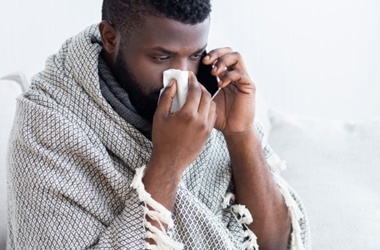One dose of Covid vaccine can cut household transmission by half, says PHE

One dose of the Covid vaccine reduces household transmission by up to half, according to a major new study by Public Health England.
The vast study included over 57,000 contacts from 24,000 households in which there was a lab-confirmed case that had received a vaccination, compared with nearly one million contacts of unvaccinated cases.
By linking case and household contact data with vaccination status, the study compared the likelihood of transmission for a vaccinated case with an unvaccinated one.
It found that:
- Those who do become infected three weeks after receiving one dose of the Pfizer-BioNTech or AstraZeneca vaccine were between 38 and 49% less likely to pass the virus on to their household contacts than those who were unvaccinated.
- Protection was seen from around 14 days after vaccination, with similar levels of protection regardless of age of cases or contacts.
- This protection is on top of the reduced risk of a vaccinated person developing symptomatic infection in the first place, which is around 60 to 65% – four weeks after one dose of either vaccine.
‘Health secretary Matt Hancock welcomed the study as ‘the most comprehensive real-world data’ showing that vaccines not only save lives of the person vaccinated but ‘also cut transmission of this deadly virus’.
He said its findings was ‘terrific news’ which ‘further reinforces that vaccines are the best way out of this pandemic as they protect you and they may prevent you from unknowingly infecting someone in your household’.
But PHE head of immunisation Dr Mary Ramsay cautioned: ‘While these findings are very encouraging, even if you have been vaccinated, it is really important that you continue to act like you have the virus, practise good hand hygiene and follow social distancing guidance.’
A previous study including 300,000 Scottish healthcare workers had concluded that they were at least 30% less likely to pass Covid onto their household contacts, with this rising to 54% after a second vaccine dose. The researchers had said this was likely a conservative estimation since their household contacts could also have caught the virus from someone else.
The findings lend further support to the Government’s recent decision to prioritise household members of immunosuppressed patients for a Covid vaccine.
The study findings in detail
The odds ratio of becoming a secondary case was 0.62 (95% confidence interval 0.48, 0.79) in household contacts of index cases receiving the ChAdOx1 nCoV-19 vaccine (AstraZeneca) 21 days or more before testing positive, compared to unvaccinated index cases, in the case-control analysis.
For household contacts of index cases receiving the BNT162b2 vaccine (Pfizer/BioNTech), the odds ratio was 0.51 (95% confidence interval 0.42, 0.62). Protective effects were observed from around 14 days after vaccination.
Source: PHE
Pulse October survey
Take our July 2025 survey to potentially win £1.000 worth of tokens

Visit Pulse Reference for details on 140 symptoms, including easily searchable symptoms and categories, offering you a free platform to check symptoms and receive potential diagnoses during consultations.









